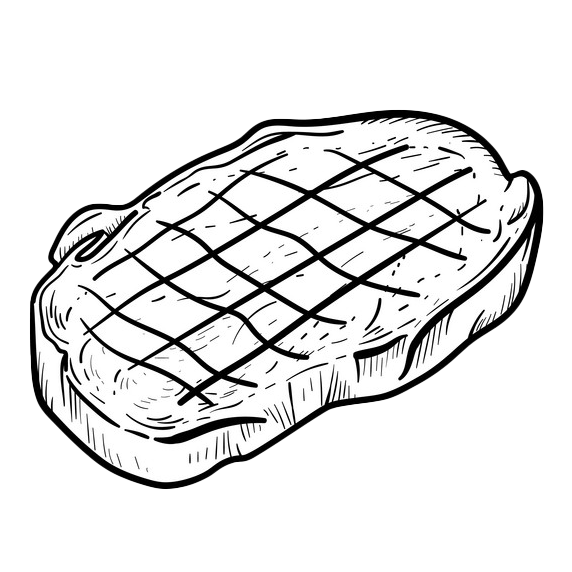Fresh vs Frozen Foods
Fresh vs. Frozen Foods: What is Healthier?
Many people refuse to walk down the frozen food aisle. They believe they’ll only encounter processed, preservative-filled foods that are inferior to the produce section and meat counter. While that might have been true 20 years ago — does anyone remember Ellio’s Pizza? — the food industry has come a long way.
Our health-conscious culture has put pressure on food brands to create healthier frozen meals, and the industry has responded. In addition, there is research that suggests buying frozen produce can even be healthier than purchasing fresh fruit and vegetables. Let’s look at why.
Fresh vs. Frozen Produce
Contrary to what you might think, frozen fruits and veggies can be more nutritious, better quality, and cheaper. They also automatically have a longer shelf-life, too! How can this be? Let’s first look at fresh produce.
Fresh produce at a grocery store isn't always at its nutritional peak. Think about it: Apples are in season from mid-September through mid-November, yet you can buy an apple any time of the year at the supermarket. In the U.S, apples are typically picked when slightly unripe, sprayed with a chemical called 1-methylcyclopropene to slow down its ripening, waxed, boxed, and kept in a warehouse until ready to be shipped to a grocery store. In just a few days, the apple will start to lose its nutritional value even before being unpacked.
On the other hand, frozen produce is often picked when ripe and frozen right away to prevent nutrient loss. Scientists back this up, too. In one study, researchers conducted 40 tests that measured nutrient levels in three-day-old produce versus their frozen equivalents. They discovered no differences in vitamin contents between nutrients in the fresh and frozen fruits and vegetables. Even more interesting, the amounts of vitamin A, vitamin C, and folate of some of these frozen fruits and veggies were higher than the fresh-stored produce.
Of course, there are a few exceptions. If you have your own garden or live close to a farmer's market, the fresh foods will be in season and subsequently packed with nutrients. It’s also a great way to support your local farms or flex your own green thumb. On the other hand, farmer’s market produce will be more expensive and will have a shorter shelf life. It all comes down to your personal values, budget, and lifestyle choices.
Perhaps the best approach is to choose a mix of fresh and frozen to maximize your nutrition intake. In the summer, peaches, tomatoes, and corn are in season, so consider buying those fresh. For versatility, purchase frozen beets, pears, and kale which by the springtime will no longer be in season.
So, Are Frozen Meals Actually Healthy?
Aside from fruits and veggies, many people are wary of buying frozen meals. They’re afraid any rice bowl, burrito, frozen filet, or cheese pizza will be packed with preservatives, salt, and fat. While some frozen foods certainly aren’t great for you, this is starting to become the exception, not the rule.
As we mentioned earlier, more and more brands are listening to the demand for healthier foods and are creating meals with shorter ingredient lists, less added sugar, and more veggies.
In order to identify a healthy frozen meal from an unhealthy one, head straight to the nutrition label. Read the number of calories, sodium, saturated fat, and sugar per serving. Experts recommend frozen meals contain less than 600 mg of sodium, a maximum of 25 grams of fat, and total calories around 400.
Look at the ingredient list, too. Ingredients will be listed from largest to smallest in quantity, so pay most attention to the first few items you see. That said, if you see any foreign food names towards the end of the list, this usually means its a preservative or additive.
Some people might be concerned about sodium content too. Sodium is often used as a preservative and a way to enhance flavor, though more and more brands are offering low-sodium options to the freezer aisle. Again, read the nutritional label and choose foods that contain less than 600 mg of sodium per serving.
But Isn’t Frozen Food More Expensive?
In some cases, healthy freezer meals will be marked up and technically more a bit more expensive than what you could replicate at home. Yet, it’s hard to put a price on convenience; if you live a busy life, preparing a healthy meal in five minutes versus 50 minutes makes a huge difference! Plus, frozen foods are way more affordable than going out to a restaurant or ordering takeout. Buying a handful of frozen meals to keep in your freezer will save you lots of money — and calories — when you have the urge to call your local Chinese restaurant.
With a little planning, nutritional label detective work, and an open mind, frozen foods can be just as, if not more nutritious than their fresh counterparts. Reconsider making the frozen food aisle your new friend, and enjoy these healthy frozen foods with family and friends.








Leave a comment